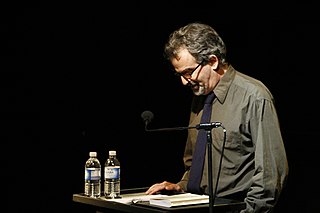A Quote by Stanislaw Lem
I see a poem as a multi-coloured strip behind peeling plaster, in separate, shining fragments.
Related Quotes
Until we let go of our mental images of who we are or who we should be, our vision remains clouded by expectation. But when we let go of everything, open ourselves to any truth, and see the world without fear or judgement, then we are finally able to begin the process of peeling off the shell of false identity that prevents our true self from growing and shining in to the world.
The subject of the poem usually dictates the rhythm or the rhyme and its form. Sometimes, when you finish the poem and you think the poem is finished, the poem says, "You're not finished with me yet," and you have to go back and revise, and you may have another poem altogether. It has its own life to live.





































